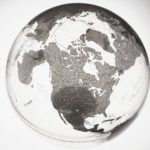 Section 1: Introduction
Section 1: Introduction
“Welcome … Introduce Yourself … Understanding Globalization”
Summaries
- 1. Introduction > Welcome > Overview
- 1. Introduction > Welcome > Three Phases Overview
- 1. Introduction > Understanding Globalization > Systems, Competition, & Connectivity
1. Introduction > Welcome > Overview
- How can we recognize and understand them? Globalization is, after all, the fascinating spectacle of how the world works- its major features, our systems, competition, and connectivity.
- Globalization is a set of man-made systems that provide transport, communication, governance, regulation, and entertainment on a global scale.
- International crime networks are the sinister and ungovernable outgrowths of the same global systems that make possible globalization’s benefits to mankind.
- Globalization creates an economic and cultural integration of the global community, but does not create economic and cultural equality among nations.
- Globalization promotes the process of creative destruction within global capitalism that creates winners and losers, making competition the beating heart of the globalization process.
- Globalization is unimaginable without the unprecedented network of electronic pathways that make possible universal email, smartphones, and the services provided by Facebook, Google, Amazon, and Wikipedia.
1. Introduction > Welcome > Three Phases Overview
- This course devise the history of globalization into three phases that have elapsed over the past 500 years.
- Phase one begins in 1492, with the first voyage of Christopher Columbus to the new world.
- Phase three begins in 1944, with the Bretton Woods agreement, which established a new global economic order.
1. Introduction > Understanding Globalization > Systems, Competition, & Connectivity
- Globalization is the most complicated phenomenon on Earth.
- So how can we understand it? This course shows that if we use concepts such as systems, competition, and connectivity, we can get very close to an understanding of what globalization is and how it works.
- How we imagine globalization is also of great practical significance.
- If we fear globalization, this fear will have political and policy consequences.
- A multinational corporation that embraces globalization because it seems to be a process that promotes profits around the world in various markets will imagine globalization as a guarantor of its profitable future.
- Global surveillance too is one aspect of globalization.
- Do we want to imagine globalization as the surveillance of the world’s electronic communications by intelligence agencies? Or do we prefer to imagine globalization as a way to implement rules and regulations that will reduce poverty and labor exploitation, prevent the overfishing of the oceans, and slow the relentless warming of the Earth’s atmosphere? In this sense, what we see as globalization is a product of our deepest wishes and fears.

 Section 1: Introduction
Section 1: Introduction
